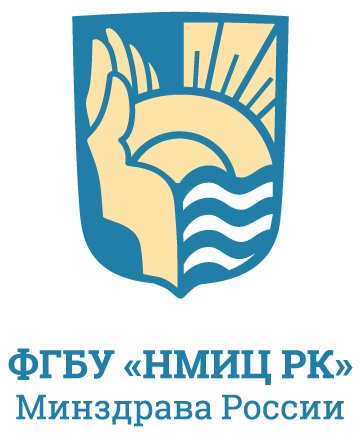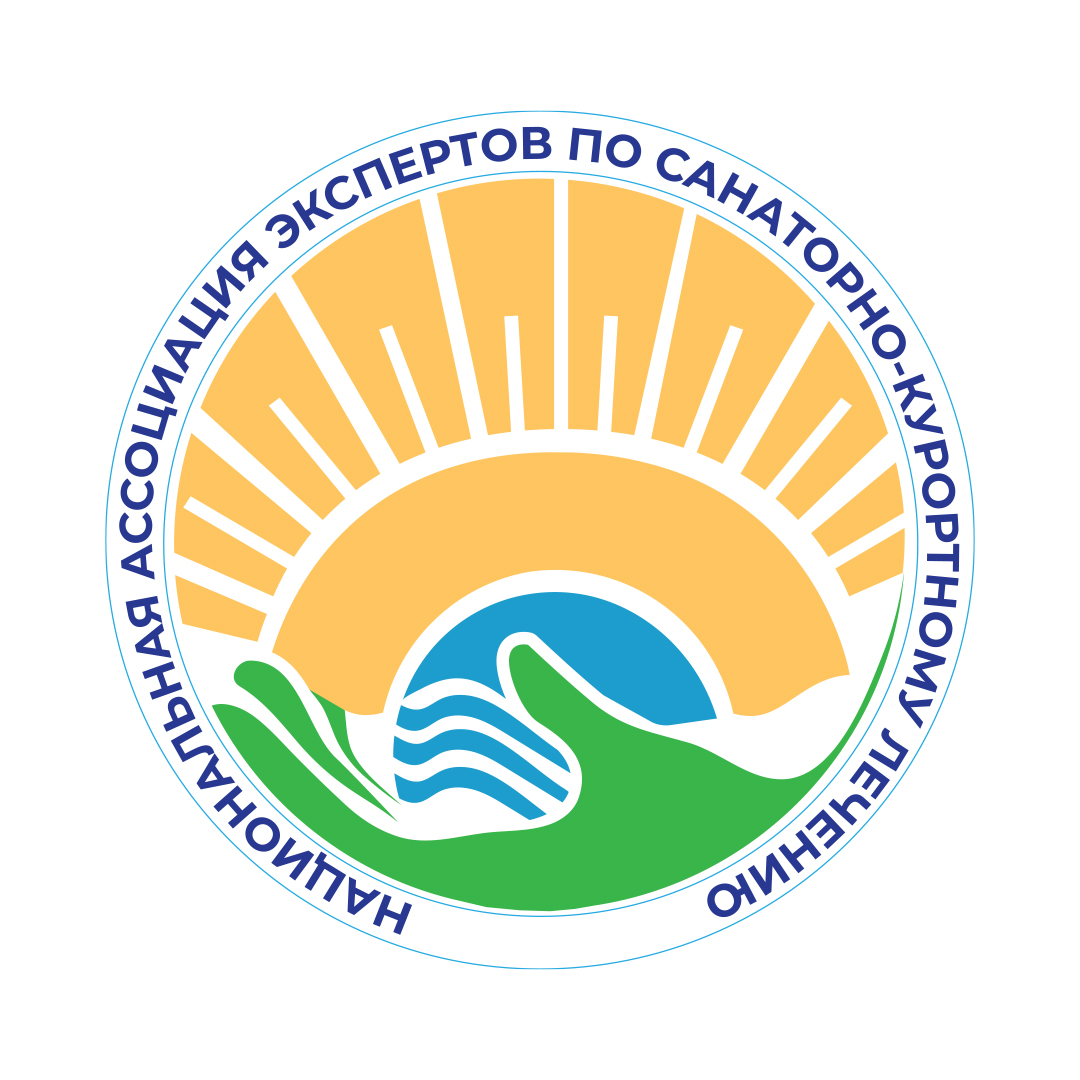Issue 24-1, 2025
Original article
Effectiveness of Gait Training with Electromyogram in Stroke Patients: an Experimental Longitudinal Pilot Study
![]() Elena V. Kostenko1,2,
Elena V. Kostenko1,2,
![]() Anastasia V. Kotelnikova1,
Anastasia V. Kotelnikova1,
![]() Liudmila V. Petrova1,*,
Liudmila V. Petrova1,*,
![]() Irena V. Pogonchenkova1,
Irena V. Pogonchenkova1,
![]() Maksim S. Filippov1
Maksim S. Filippov1
1S.I. Spasokukotsky Moscow Centre for Research and Practice in Medical Rehabilitation, Restorative and Sports Medicine, Moscow, Russia
2 Pirogov Russian National Research Medical University, Moscow, Russia
ABSTRACT
INTRODUCTION. Psychophysiological technologies with biofeedback (BFB) are a promising area of in medical rehabilitation (MR) for post-stroke patients.
AIM. To evaluate the effectiveness of the MR-program including psychophysiological technology with BFB for patients with an ischemic stroke (IS).
MATERIALS AND METHODS. The study includes patients in the early recovery period of IS with mild to moderate motor deficits, cognitive dysfunction and emotional-volitional disorders. The complex MR program for the main group 1 patients (MG1, n = 30) included psychophysiological BFB-technology based on the beta-rhythm parameters of Electroencephalography (EEG); the main group 2 (MG2) patients (n = 55) received psychophysiological trainings with BFB based on heart rate. The patients of the control groups (KG1, n = 30 and KG2, n = 30) received only standard MR. To control the effectiveness of MR, we analyzed the changes in physiological parameters (HR, blood pressure (BP)), EEG parameters, cardiointervalography (CIG), as well as the results of the Montreal Cognitive Assessment Scale (MoCA), the well-being, activity, and mood questionnaire (WAM), the Hospital Anxiety and Depression Scale (HADS), and the Motivation for Success test according to T. Ehlers.
RESULTS AND DISCUSSION. BFB-training based on the EEG beta rhythm showed a statistically significant improvement in the cognitive status of the patients in MG1 according to the MoCA, a decrease in the level of anxiety and reaction to external influences, which was confirmed by the dynamics of systolic BP (SBP) and HR, as well as the achievement of a moderately high level of motivation with reliable differences from baseline values and compared to Control Group 1 (p < 0.05). The course of biofeedback training based on the HR parameters showed a reliable change in the CIG parameters, a decrease in SBP and HR in the patients of MG2; statistically significant increase of the WAM questionnaire parameters (p < 0.05).
CONCLUSION. The integration of psychophysiological technology with biofeedback in comprehensive rehabilitation protocols enhances the efficacy of post-stroke cognitive-motor rehabilitation, particularly in patients with high cardiovascular risks.
KEYWORDS: psychophysical technologies, biofeedback, medical rehabilitation, stroke
FOR CITATION:
Kostenko E.V., Kotelnikova A.V., Petrova L.V., Pogonchenkova I.V., Filippov M.S. The Psychophysiological Technology with Biofeedback in Complex Rehabilitation of Post-Stroke Patients: a Randomized Controlled Study. Bulletin of Rehabilitation Medicine. 2025; 24(1):55–66. https://doi.org/10.38025/2078-1962-2025-24-1-55-66 (In Russ.).
FOR CORRESPONDENCE:
Liudmila V. Petrova, Е-mail: ludmila.v.petrova@yandex.ru, nauka-org@mail.ru
References:
- Рузинова В.М., Долгополова Ю.В., Петелин Д.С. и др. Использование технологий биологической обратной связи в клинической практике. Медицинский Совет. 2023; (13): 288–296. https://doi.org/10.21518/ms2023-245 [Ruzinova V.M., Dolgopolova Yu.V., Petelin D.S et al. The use of biofeedback techniques in clinical practice. Meditsinskiy sovet = Medical Council. 2023; (13): 288–296. https://doi.org/10.21518/ms2023-245 (In Russ.).]
- Хлудеев И.И. Системы с биологической обратной связью: пособие. Минск: БГУИР. 2023; 83 с. [Hludeev I.I. Systems with biological turnover: a collection. Minsk: BGUIR. 2023; 83 p. (In Russ.).]
- Гоголева А.Г., Захаров В.В. Тревожно-депрессивные расстройства у пациентов после инсульта: распространенность, подходы к диагностике и терапии. Эффективная фармакотерапия. 2019; 15(34): 36–44. https://doi.org/10.33978/2307-3586-2019-15-34-36-44 [Gogoleva A.G., Zakharov V.V. Anxiety and depressive disorders in patients after stroke: prevalence, approaches to diagnosis and therapy. Effective pharmacotherapy. 2019; 15(34): 36–44. https://doi.org/10.33978/2307-3586-2019-15-34-36-44 (In Russ.).]
- Коваленко Е.А., Боголепова А.Н., Катунин Д.А. Предшествующие инсульту когнитивные нарушения и их роль в формировании постинсультного когнитивного дефицита. Журнал неврологии и психиатрии им. С.С. Корсакова. Спецвыпуски. 2017; 117(12-2): 19–24. https://doi.org/10.17116/jnevro201711712219-24 [Kovalenko E.A, Bogolepova A.N, Katunin D.A. The role of pre-stroke cognitive disorders in the formation of post-stroke cognitive impairment. S.S. Korsakov Journal of Neurology and Psychiatry. 2017; 117(12-2): 19–24. https://doi.org/10.17116/jnevro201711712219-24 (In Russ.).]
- Савина М.А. Симонов А.Н., Петрова Е.А. Исследование факторов риска постинсультных депрессий в когорте пациентов, перенесших первый церебральный инсульт, с помощью логистического регрессионного анализа. Международный журнал прикладных и фундаментальных исследований. 2019; 10: 103–107. https://doi.org/10.17513/mjpfi.12875 [Savina M.A., Simonov A.N., Petrova E.A. Study of risk factors for post-stroke depression in a cohort of patients with the first cerebral stroke using logistic regression analysis. International Journal of Applied and Fundamental Research. 2019; 10: 103–107. https://doi.org/10.17513/mjpfi.12875 (In Russ.).]
- Филатова Е.Г. Постинсультная депрессия. Медицинский Совет. 2017; (1S): 47–51. https://doi.org/10.21518/2079-701X-2017-0-47-51 [Filatova E.G. Рost-stroke depression. Meditsinskiy sovet = Medical Council. 2017; (1S): 47–51. https://doi.org/10.21518/2079-701X-2017-0-47-51 (In Russ.).]
- Харченко Е.В., Яворский А.А. Особенности психоэмоционального состояния лиц, перенесших сосудистую катастрофу головного мозга. Человек и мир: психология риска, инноваций, конфликта: сборник научных трудов. Том 2. Екатеринбург. Гуманитарный университет. 2016; 88–90. [Kharchenko E.V., Yavorsky A.A. Features of the psychoemotional state of persons with a vascular catastrophe of the brain. Man and the world: psychology of risk, innovation, conflict: a collection of scientific papers. Volume 2. Yekaterinburg. University of the Humanities. 2016; 88–90 (In Russ.).]
- Ковальчук В.В., Дроздова М.С., Нестерин К.В. Факторы успеха и причины неудач реабилитации пациентов, перенесших инсульт. Новые возможности нейропротективной терапии. Эффективная фармакотерапия. Эффективная фармакотерапия. Неврология и психиатрия. 2022; 18(43): 28–36. https://doi.org/10.33978/2307-3586-2022-18-43-28-36 [Kovalchuk V.V., Drozdova M.S., Nesterin K.V. Success factors and causes of failures in rehabilitation of stroke patients. New possibilities of neuroprotective therapy. Effective pharmacotherapy. 2022; 18(43): 28–36. https://doi.org/10.33978/2307-3586-2022-18-43-28-36 (In Russ.).]
- Жизневский Д.В., Замерград М.В., Левин О.С. Роль когнитивных нарушений в развитии расстройств равновесия при цереброваскулярных заболеваниях. Журнал неврологии и психиатрии им. С.С. Корсакова. Спецвыпуски. 2022; 122(11–2): 51–58. https://doi.org/10.17116/jnevro202212211251 [Zhiznevskiy D.V., Zamergrad M.V., Levin O.S. The role of cognitive impairment in the development of balance disorders in cerebrovascular diseases. S.S. Korsakov Journal of Neurology and Psychiatry. 2022; 122(11–2): 51–58. https://doi.org/10.17116/jnevro202212211251 (In Russ.).]
- Фролова Е.В., Емелин А.Ю., Лобзин В.Ю. Нарушение когнитивных функций в пожилом возрасте: руководство для врачей. Москва: ГЭОТАР-Медиа. 2023; 208 с. https://doi.org/10.33029/9704-7515-7-KNP-2023-1-208 [Frolova E.V., Emelin A.Yu., Lobzin V.Yu. Cognitive impairment in old age: a guide for doctors. Moscow: GEOTAR Media. 2023; 208 р. https://doi.org/10.33029/9704-7515-7-KNP-2023-1-208 (In Russ.).]
- Захаров В.В. Когнитивные нарушения при депрессии. Эффективная фармакотерапия. 2015; 1: 18–26. [Zakharov V.V. Cognitive impairment in depression. Effective pharmacotherapy. 2015; 1: 18–26 (In Russ.).]
- Кутлубаев М.А., Ахмадеева Л.Р. Постинсультная усталость. Журнал неврологии и психиатрии им. С.С. Корсакова. Спецвыпуски. 2010; 110(4–2): 60–66. [Kutlubaev M.A., Akhmadeeva L.R. Poststroke fatigue. S.S. Korsakov Journal of Neurology and Psychiatry. 2010; 110(4-2): 60-66 (In Russ.).]
- Cumming T.B., Packer M., Kramer S.F., et al. The prevalence of fatigue after stroke: A systematic review and meta-analysis. Int J Stroke. 2016; 11(9): 968–977. https://doi.org/10.1177/1747493016669861
- Jackson S., Mercer C., Singer B.J. An exploration of factors influencing physical activity levels amongst a cohort of people living in the community after stroke in the south of England. Disabil Rehabil. 2018; 40(4): 414–424. https://doi.org/10.1080/09638288.2016.1258437
- Захаров В.В. Основная цель лечения постинсультных когнитивных нарушений — приемлемый уровень повседневного функционирования и качества жизни пациентов. Эффективная фармакотерапия. 2019; 15(34): 8–9. [Zakharov V.V. The main goal of the treatment of post-stroke cognitive impairment is an acceptable level of daily functioning and quality of life of patients. Effective pharmacotherapy. 2019; 15(34): 8–9 (In Russ.).]
- Петрова Е.А., Поневежская Е.В., Савина М.А. и др. Постинсультная апатия. Consilium Medicum. 2020; 22(9): 33–37. https://doi.org/10.26442/20751753.2020.9.200274 [Petrova E.A., Ponevejsky E.V., Savina M.A. et al. Post-stroke apathy. Consilium Medicum. 2020; 22(9): 33–37. https://doi.org/10.26442/20751753.2020.9.200274 (In Russ.).]
- Fitzsimons C.F., Nicholson S.L., Morris J. et al. Stroke survivors’ perceptions of their sedentary behaviours three months after stroke. Disabil Rehabil. 2022; 44(3): 382–394. https://doi.org/10.1080/09638288.2020.1768304
- Vahlberg B., Bring A., Hellström K. et al. Level of physical activity in men and women with chronic stroke. Physiother Theory Pract. 2019; 35(10): 947–955. https://doi.org/10.1080/09593985.2018.1460646
- Ермакова Н.Г. Психологическая реабилитация больных с последствиями инсульта в условиях восстановительного лечения. Медицинская психология в России. 2018; 10(2): 1–10. [Ermakova N.G. Psychological rehabilitation of patients after stroke in conditions of rehabilitation treatment. Medical psychology in Russia. 2018; 10(2): 1–10 (In Russ.).]
- Lee J.M., Moon H.H., Lee S.K. et al. The effects of a community-based walking program on walking ability and fall-related self-efficacy of chronic stroke patients. J Exerc Rehabil. 2019; 15(1): 20–25. https://doi.org/10.12965/jer.1836502.251
- Котельникова А.В., Погонченкова И.В., Костенко Е.В. и др. Психометрическая апробация скрининговых методик диагностики когнитивного статуса постинсультных пациентов: обсервационное когортное исследование. Вестник восстановительной медицины. 2023; 22(2): 32–41. https://doi.org/10.38025/2078-1962-2023-22-2-32-41 [Kotelnikova A.V., Pogonchenkova I.V., Kostenko E.V. et al. Psychometric Approbation of Screening Methods for the Diagnosis of Cognitive Status in a Sample of Ischemic Stroke Patients: an Observational Cohort Study. Bulletin of Rehabilitation Medicine. 2023; 22(2): 32–41. https://doi.org/10.38025/2078-1962-2023-22-2-32-41 (In Russ.).]
- Ильин Е.П. Мотивация и мотивы. Санкт-Петербург: Питер, 2002; 512 с. [Ilyin E.P. Motivation and motives. St. Petersburg: Peter. 2002; 512 p. (In Russ.).]
- Кукшина А.А., Котельникова А.В., Рассулова М.А. и др. Исследование психометрических свойств «Госпитальной шкалы тревоги и депрессии» (HADS), рекомендованной для врачей общесоматической практики, на выборке пациентов с нарушением двигательных функций. Клиническая и специальная психология. 2023; 12(2): 1–24. https://doi.org/10.17759/cpse.2023120201 [Kukshina A.A., Kotelnikova A.V., Rassulova M.A. et al. Investigation of the psychometric properties of the “Hospital scale of anxiety and depression” (HADS), recommended for general somatic practitioners, on a sample of patients with impaired motor functions. Clinical Psychology and Special Education. 2023; 12(2): 1–24. https://doi.org/10.17759/cpse.2023120201 (In Russ.).]
- Доскин В.А., Лаврентьева Н.А., Мирошников М.П. и др. Тест дифференцированной самооценки функционального состояния. Вопросы психологии. 1973; 6: 141–145 [Doskin V.A., Lavrentieva N.A., Miroshnikov M.P. et al. Test of differentiated self-assessment of functional state. Questions of psychology. 1973; 6: 141–145 (In Russ.).]
- Методические рекомендации «Методика регистрации и формирование заключения по ЭЭГ». Департамент здравоохранения г. Москвы. 2021. Доступно на https://neurosoft.com/files/catalog/catalog/753/ru/files/Metodika-registracii-i-formirovaniya-zaklyucheniya-po-EEG--Moskva--2021.pdf. (Дата обращения: 01.07.2024) [Methodological recommendations “Methods of EEG registration and results reporting”. Moscow Healthcare Department. 2021. Available at: https://neurosoft.com/files/catalog/catalog/753/ru/files/Metodika-registracii-i-formirovaniya-zaklyucheniya-po-EEG--Moskva--2021.pdf (Accessed: 01.07.2024) (In Russ.).]
- Vilou I., Varka A., Parisis D. et al. EEG-Neurofeedback as a Potential Therapeutic Approach for Cognitive Deficits in Patients with Dementia, Multiple Sclerosis, Stroke and Traumatic Brain Injury. Life (Basel). 2023; 13(2): 365. https://doi.org/10.3390/life13020365
- Hayashi M., Okuyama K., Mizuguchi N. et al. Spatially bivariate EEG-neurofeedback can manipulate interhemispheric inhibition. Elife. 2022; 11: e76411. https://doi.org/10.7554/eLife.76411
- Batail J.M., Bioulac S., Cabestaing F. et al. NExT group. EEG neurofeedback research: A fertile ground for psychiatry? Encephale. 2019; 45(3): 245–255. https://doi.org/10.1016/j.encep.2019.02.001

The content is available under the Creative Commons Attribution 4.0 License.
©
This is an open article under the CC BY 4.0 license. Published by the National Medical Research Center for Rehabilitation and Balneology.




